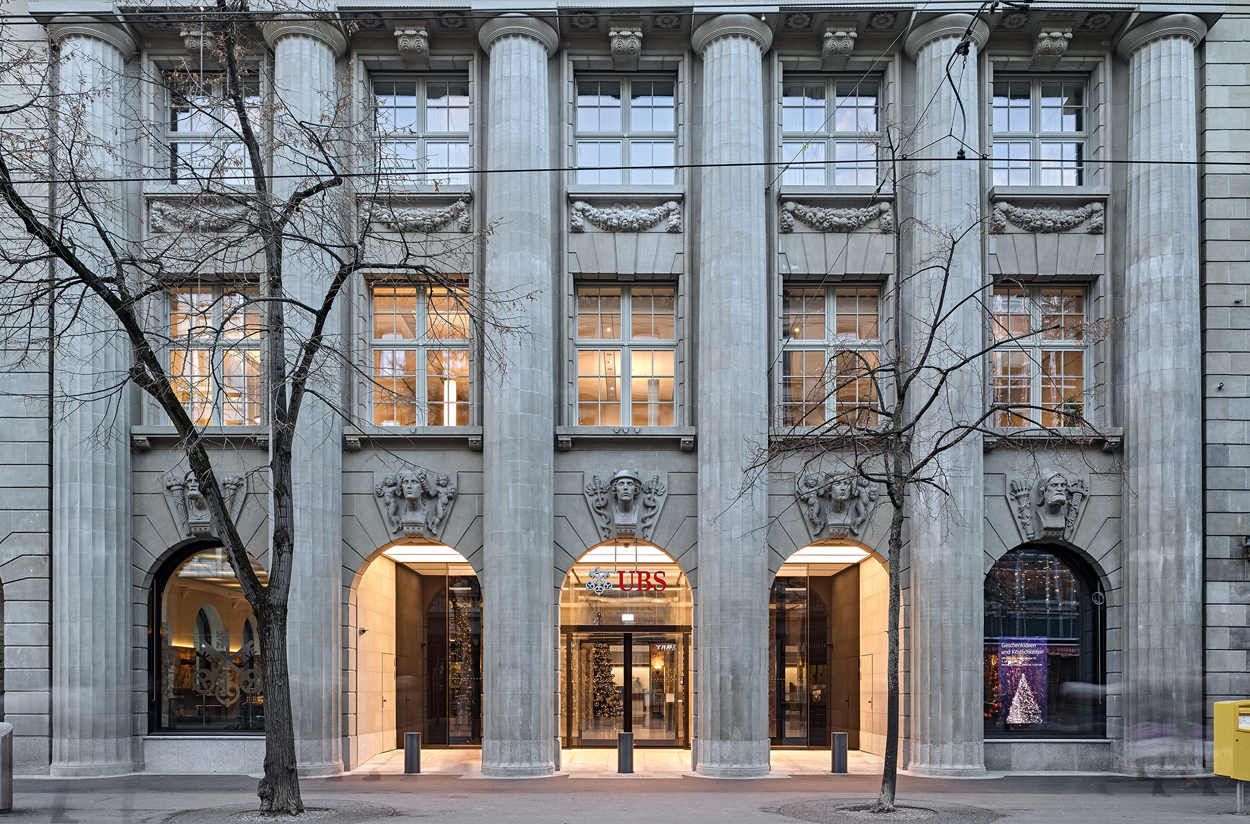Financial Results
UBS's Third-Quarter Underlying Profits Dip, Reports Inflows

Among the result details, UBS said the acquired Credit Suisse wealth business logged net new money for the first time in more than a year.
The global wealth management arm of UBS logged profit before tax
on an underlying basis of $1.119 billion for the three months
ended 30 September, down from $1.234 billion a year earlier, the
Zurich-listed group said today.
The result was achieved on underlying revenues of $5.492 billion
in Q3, versus $4.567 billion a year earlier in the wealth
business. Total costs were $4.370 billion in the latest quarter,
against $3.326 billion a year before.
On a reported basis, total revenues rose 21 per cent to $5.810
billion, mainly due to the consolidation of Credit Suisse
revenues. The increase was partly offset by a decrease, largely
driven by lower other income.
The rise in reported operating costs – 44 per cent – to $4.801
billion, was largely due to the consolidation of Credit Suisse
expenses, integration-related expenses, unfavourable foreign
currency effects, higher financial advisor variable compensation
and an increase in technology expenses, the bank said in a
statement today.
UBS said its wealth business’s cost/income ratio was 82.6 per
cent and the underlying cost/income ratio was 79.6 per
cent.
Invested assets decreased 3 per cent from the previous quarter to
$3.617 trillion, and it logged net new money of $22 billion. The
gain was driven by the arrival of new clients, improved “share of
wallet” and positive net new money in the Credit Suisse wealth
business for the first time since the first quarter of 2022.
UBS’s acquisition of Credit Suisse in April this year, leaving
Switzerland with one universal bank, continues to cause waves in
the European and wider wealth and private banking
sector.
“We are executing on the integration of Credit Suisse at pace and
have delivered underlying profitability for the group in the
first full quarter since the acquisition. Our clients have
continued to place their trust and confidence in us, contributing
to strong inflows across wealth management and our Swiss
franchise. We are optimistic about our future as we build an even
stronger and safer version of the UBS that was called upon to
stabilise the financial system in March and one that all of our
key stakeholders can be proud of,” Sergio P Ermotti, Group CEO,
said.
The bank explained its wealth management client inflow in more
detail.
“Our consistent dedication to clients continues to be rewarded by
their confidence and trust in UBS. This was reflected in another
quarter of strong flows. We have now stabilised Credit Suisse and
continued to grow our franchise through new client acquisition
and share of wallet gains, as well as the continued success of
our client retention and win-back strategy,” it said.
“Credit Suisse Wealth Management’s quarterly net new money has
now turned positive for the first time in a year and a half, with
$3 billion in the third quarter. UBS wealth management’s $18
billion in net new money is the second highest third quarter
result in over a decade. Net new money was positive across all
regions, with particular strength in APAC. Net new fee generating
assets at UBS were also strong at $21 billion, representing a 6
per cent annualised growth rate,” it said.
At the group level, UBS said its underlying group costs of $9.6
billion fell around 5 per cent compared with estimated underlying
operating costs expenses for the combined group for the second
quarter of 2023. The bank said it “continued to execute our plans
to reduce costs in non-core and legacy business, restructure
Credit Suisse’s investment bank and remove duplication across
operations.” UBS said underlying pre-tax profit was $844 million
in Q3, against $2.042 billion a year before. On a reported basis,
UBS logged a loss of $255 million, contrasting with a profit of
$2.323 billion. A large year-on-year rise in reported operating
costs – some of which were caused by the Credit Suisse
acquisition – explained the change.
At the end of September, UBS had a Common Equity Tier 1 capital
ratio – its “buffer” against shocks – of 14.4 per cent, and a
liquidity coverage ratio of 196 per cent.
